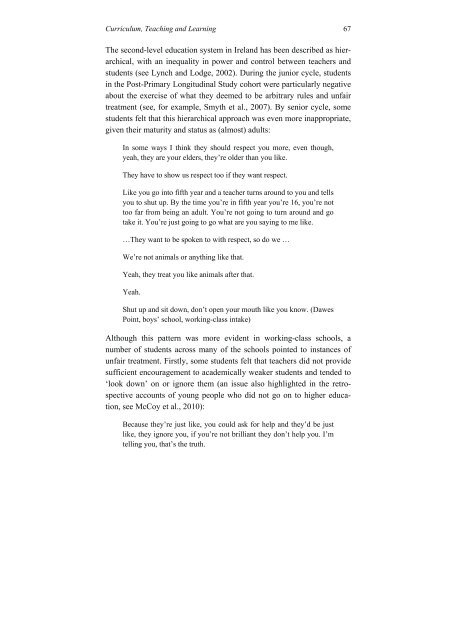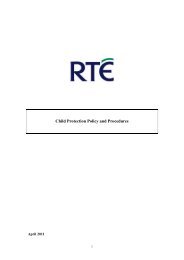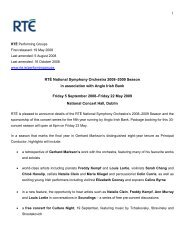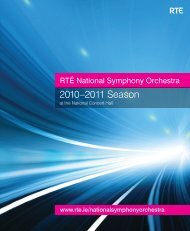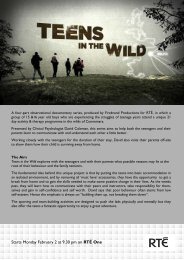From Leaving CertiFiCate to Leaving SChooL a Longitudinal Study ...
From Leaving CertiFiCate to Leaving SChooL a Longitudinal Study ...
From Leaving CertiFiCate to Leaving SChooL a Longitudinal Study ...
You also want an ePaper? Increase the reach of your titles
YUMPU automatically turns print PDFs into web optimized ePapers that Google loves.
Curriculum, Teaching and Learning 67<br />
The second-level education system in Ireland has been described as hierarchical,<br />
with an inequality in power and control between teachers and<br />
students (see Lynch and Lodge, 2002). During the junior cycle, students<br />
in the Post-Primary <strong>Longitudinal</strong> <strong>Study</strong> cohort were particularly negative<br />
about the exercise of what they deemed <strong>to</strong> be arbitrary rules and unfair<br />
treatment (see, for example, Smyth et al., 2007). By senior cycle, some<br />
students felt that this hierarchical approach was even more inappropriate,<br />
given their maturity and status as (almost) adults:<br />
In some ways I think they should respect you more, even though,<br />
yeah, they are your elders, they’re older than you like.<br />
They have <strong>to</strong> show us respect <strong>to</strong>o if they want respect.<br />
Like you go in<strong>to</strong> fifth year and a teacher turns around <strong>to</strong> you and tells<br />
you <strong>to</strong> shut up. By the time you’re in fifth year you’re 16, you’re not<br />
<strong>to</strong>o far from being an adult. You’re not going <strong>to</strong> turn around and go<br />
take it. You’re just going <strong>to</strong> go what are you saying <strong>to</strong> me like.<br />
…They want <strong>to</strong> be spoken <strong>to</strong> with respect, so do we …<br />
We’re not animals or anything like that.<br />
Yeah, they treat you like animals after that.<br />
Yeah.<br />
Shut up and sit down, don’t open your mouth like you know. (Dawes<br />
Point, boys’ school, working-class intake)<br />
Although this pattern was more evident in working-class schools, a<br />
number of students across many of the schools pointed <strong>to</strong> instances of<br />
unfair treatment. Firstly, some students felt that teachers did not provide<br />
sufficient encouragement <strong>to</strong> academically weaker students and tended <strong>to</strong><br />
‘look down’ on or ignore them (an issue also highlighted in the retrospective<br />
accounts of young people who did not go on <strong>to</strong> higher education,<br />
see McCoy et al., 2010):<br />
Because they’re just like, you could ask for help and they’d be just<br />
like, they ignore you, if you’re not brilliant they don’t help you. I’m<br />
telling you, that’s the truth.


